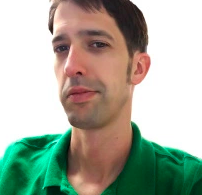Marvel’s Agents of S.H.I.E.L.D. arrived on ABC in 2013, bringing the Marvel Cinematic Universe to television for the first time since the debut of the Iron Man movie five years earlier. Many viewers—even the diehard fans—agree the first half of Season One was rough, to the point a lot of people stopped watching.
Those who stuck with the show have been greatly rewarded.
A little background. S.H.I.E.L.D. is an acronym for Strategic Homeland Intervention and Enforcement Logistics Division. It’s been a staple of Marvel Comics for decades, a shadowy spy organization tasked with keeping tabs on superheroes and threats to the world from aliens, interloping dimensions, and supervillains.
The third season of Marvel’s Agents of S.H.I.E.L.D. deals primarily with the Inhumans, people whose DNA was modified by the Kree alien species millennia ago. When exposed to the chemical terrigen, latent powers are activated. Daisy Johnson, aka Skye, aka Quake, is the S.H.I.E.L.D. agent tasked with bringing these enhanced people under the agency’s protection. She’s done her own grappling with these powers—vibrational energies that can cause earthquakes— in Season 2; here she’s presented as a competent though struggling leader.
“When I changed, I felt like a monster,” she says, and later adds, “I want Inhumans taking action with S.H.I.E.L.D., to see that being different can mean making a difference.”
One of the things she deals with, and that other Inhumans must reconcile, is whether these powers are gifts or curses. Hints of this discussion are dropped throughout, such as when scientist Gemma Simmons complains about dealing with random Inhuman abilities.
Lincoln, a young Inhuman who has joined S.H.I.E.L.D., corrects her: “Powers aren’t random. We were taught that each is given to fill an evolutionary need at the time. To create equilibrium within the species.”
“Ah. A natural intelligent design,” Gemma replies.
It’s an intriguing beginning to a discussion of faith and destiny that picks up at the season’s midpoint, with the introduction of Elena “Yo-Yo” Rodriguez in the episode “Bouncing Back.” When she’s mistaken for an enemy and captured by S.H.I.E.L.D., she tells agent Alphonso Mackenzie—known as Mack to his comrades— “I wouldn’t use my gifts to commit a sin. They’re a gift from God.”
Mack is skeptical, seeing as how people are exposed to terrigen through tainted fish products, but later he confesses his doubts to Elena in a conversation that surprises Daisy.
“It’s not something I talk about, but like you, I rely on my faith,” Mack says. “And somehow, I never made the connection until you said it, but maybe these powers, these gifts that you have, that Daisy has, maybe they’re not random. Maybe it’s part of a plan.”
To see a character so bluntly profess a belief in what is nominally Christian faith—make that two characters—without scorn from their colleagues impressed me. Even more impressive is how the writers carried this theme throughout the rest of the season.
You see, Daisy had a vision, one in which a gold cross floats through the zero-gravity interior of a S.H.I.E.L.D. plane drifting in space. She knows someone dies. It isn’t until the last episode we realize that person who dies does so to stop Hive, the Inhuman villain who threatens to bring all of humanity under his sway.
Hive is treated as a demonic character, a representation of the devil, loss of control, and giving in to evil, all rolled into one. He inspires a blind religious devotion from the leaders of HYDRA, archenemies to S.H.I.E.L.D..
When Daisy falls under his power, in a mind-control similar to drug addiction, she commits acts of violence against her friends and betrays S.H.I.E.L.D.. She’s corrupted by darkness, to the point that even Mack—her partner and friend—can’t bring her back. He confronts her, unarmed, to appeal to the shreds of her own personality. In return, she beats him nearly to death.
It’s only when Daisy is released from Hive’s control (through an event I won’t spoil, because it’s a masterful story twist) that she realizes her “sin,” if you will. That makes it all the more heartbreaking when Mack visits her in her confinement at S.H.I.E.L.D. HQ.
Mack’s faith shines here in the aptly named episode “Absolution,” when he uses a gift that has nothing to do with alien powers: forgiveness. He takes a step toward Daisy, but she refuses him, saying, “You remember what happened last time.”
“Yeah.” There’s a long pause from Mack. “And I forgive you.”
Daisy is visibly struck, on the edge of tears. “I didn’t ask for that.”
Mack blocks her from trying to walk away from him. “That’s too bad. I forgive you.”
She tries to fight him, weakened by withdrawal symptoms from Hive’s control, but in the end he envelopes her in a hug, until she breaks down in tears. This is her partner, her friend, her ally, the man she’s betrayed and brutally injured; yet, he holds her like the hurt younger sister she is to him.
Even more striking, as Mack hugs her, Daisy whispers, “I don’t deserve this.”
Truly, that is the Christian’s reaction—or should be—to the forgiveness offered by Christ. Don’t we fight it? Don’t we push back? We know in our sin we’re unworthy of the gracious gift.
There are many more references to faith—which is never said to be Christian but is heavily implied—scattered throughout, but these are the best references. It infuses Season 3 with an almost Biblical narrative of good versus evil, the faithful few battling a seemingly intractable evil.
The closing moments of “Ascension,” the Season 3 finale, are the best of the entire series and some of the best television period.
Lincoln, Daisy’s love and fellow Inhuman, sacrifices himself to save not only her and S.H.I.E.L.D., but the whole world. He is “innocent,” because he dies in the place of others, not for anything he has done wrong.
There comes a moment when everyone realizes Lincoln has trapped himself with Hive and a weapon that can destroy mankind, and no one can save Lincoln. He has to die, to prevent evil from winning. “You can’t just die for me like this,” Daisy says. “It’s… it’s not right.”
No, it isn’t right. But it’s necessary.
Daisy cries in desperation to Phil Coulson, her mentor, leader, and father-figure, “He’s paying for my mistakes.”
“No.” Coulson is haunted by the knowledge his actions, his sins, led to the creation of Hive and his infiltration into our world. “He’s paying for all our mistakes.”
Kudos to the writers for penning a strong season and including a message that, whether intentional or not, should resonate with Christians everywhere.
***
 Steve Rzasa is the author of eleven novels and numerous short stories of science-fiction, fantasy, steampunk, and contemporary fiction. His work has won the ACFW Carol Award for Speculative fiction.
Steve Rzasa is the author of eleven novels and numerous short stories of science-fiction, fantasy, steampunk, and contemporary fiction. His work has won the ACFW Carol Award for Speculative fiction.
Steve received his bachelor’s degree in journalism from Boston University, and worked for eight years at newspapers in Maine and Wyoming. He’s been a librarian since 2008, and received his Library Support Staff Certification from the American Library Association in 2014—one of only 100 graduates nationwide and four in Wyoming. He is the technical services librarian in Buffalo, Wyoming, where he lives with his wife and two boys. Steve’s a fan of all things science-fiction and superhero, and is also a student of history.


Thanks for the article. I’ve always been intrigued by the family dynamic on the show, but the few faith elements that do occur are also intriguing.
Honestly, Agents of Shield does not get the credit or acclaim it deserves. That’s one of my pet peeves in fandom. Daredevil and the other Netflix shows are given kudos, but AoS has been running longer (100th episode just aired a week ago) and is more tightly connected with the MCU films. According to Rotten Tomatoes, AoS has a 95 percent rating, highest of the 10 mcu shows; the two-season Agent Carter is fourth with 88 percent, just above Daredevil. Aos is even second overall on the tomato-meter, just below Black Panther.
I was watching AOS with my two teenage girls and for the most part, really enjoying it. But I decided to pull the plug on it when we got to the episode in season 3 where Fitz and Simmons slept together. It was a hard decision and my girls, along with me, were sad to have to leave the show. But, for the writers to take the two most innocent characters and put them in that situation showed me clearly the show had no interest in being family friendly, at least not from a Christian viewpoint. That being said, I appreciate your perspective on some Christian themes that played out later in the season that we never got to. Maybe I will watch a little further and see if the show can redeem itself.
This was fun to read. My brothers and I have been following the show and were overjoyed when it took on an element of faith. While the show has its flaws (language, adult scenes, and an increase in violence), I really appreciate the show going out of its way to develop Mack and Yo Yo’s characters (particularly Mack’s, who never misses a chance to correct a villain about there being only one God and quoting Scripture to his colleagues.) During S3, my brothers and I spent some time analyzing the allegory AoS writers left us: Lincoln and HIVE and the selfless sacrifice. The show definitely seems to have taken on a new hue mid-season 3.